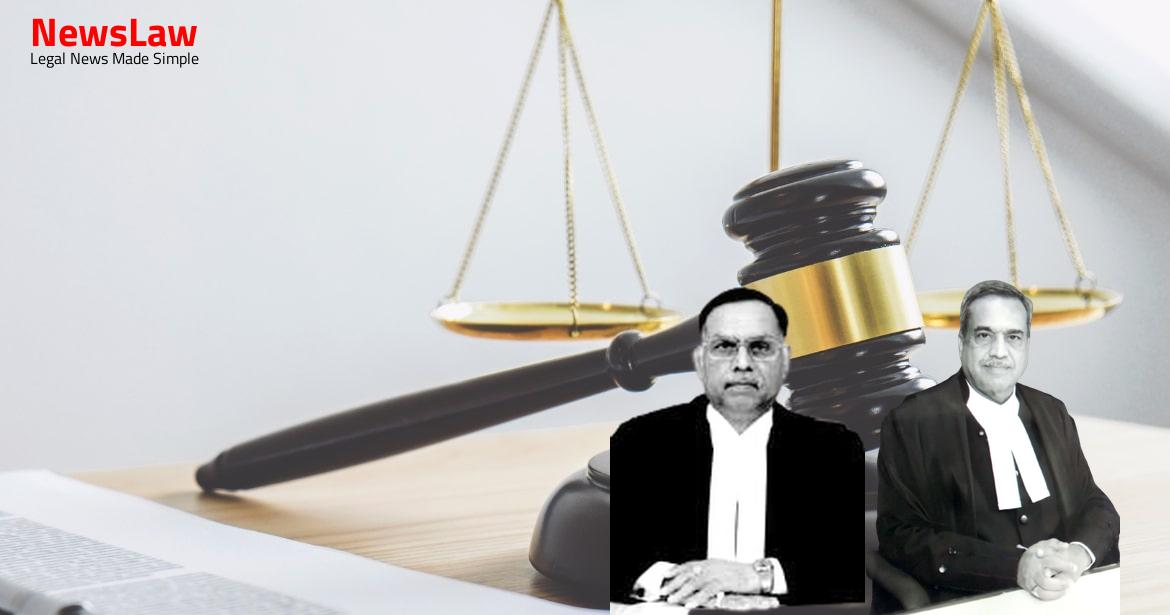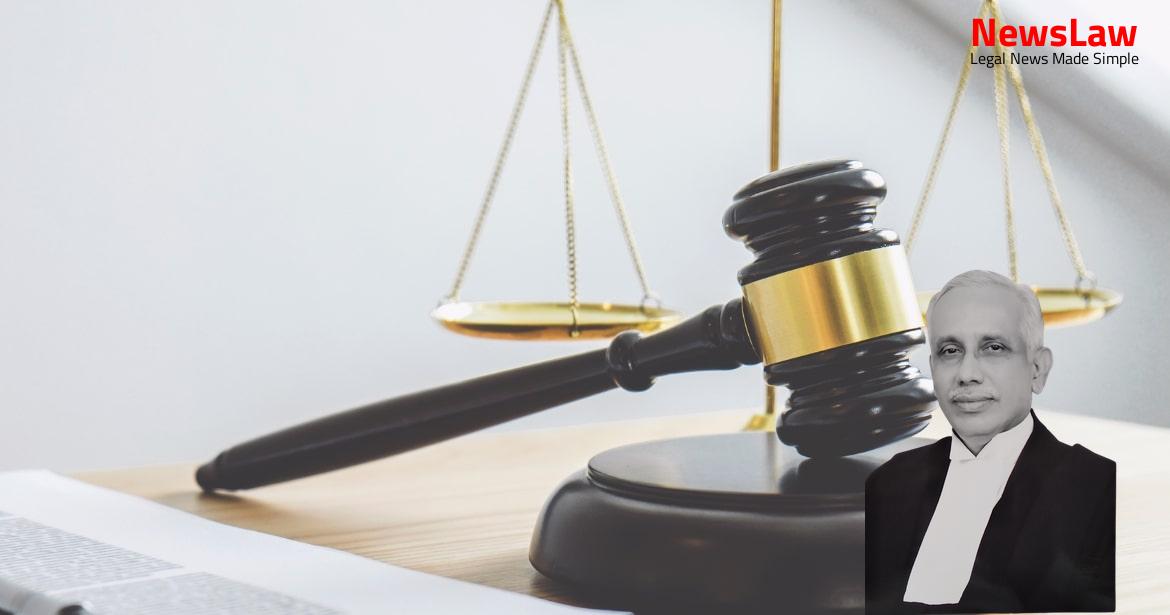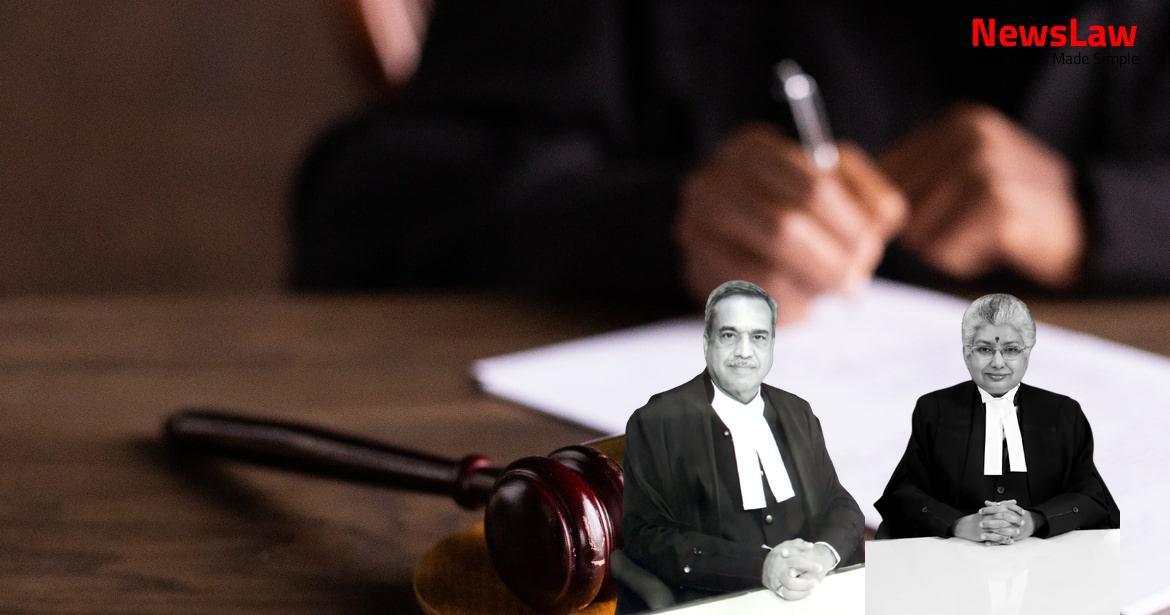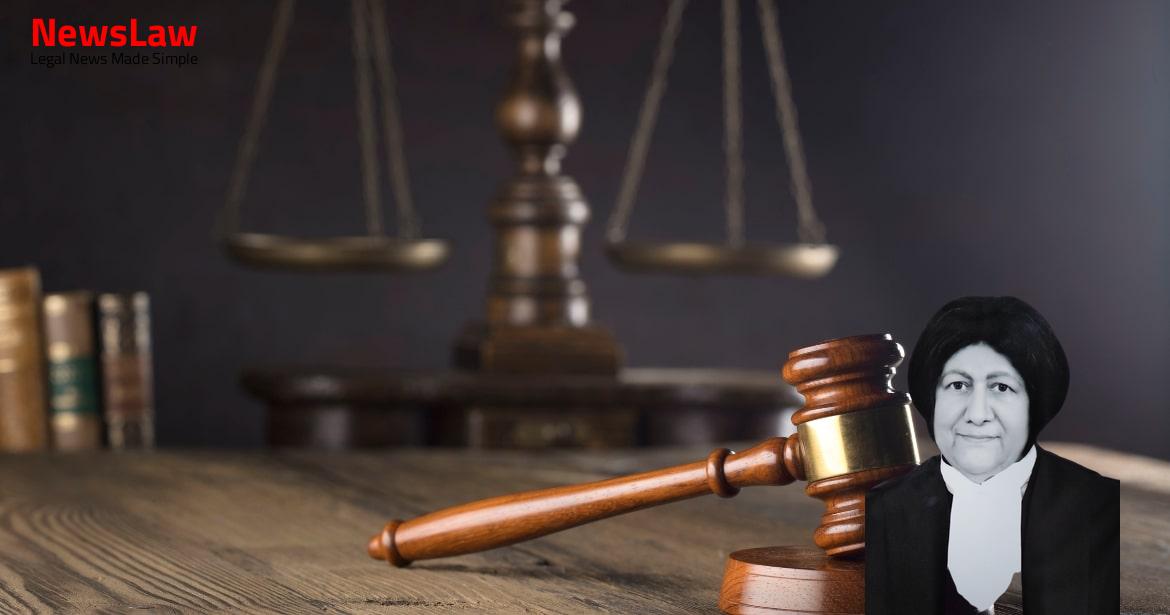This blog focuses on the critical legal analysis conducted by the court regarding compensation and protection for a rape victim. The case delves into the intricate legal frameworks and schemes in place to support individuals who have faced such traumatic experiences. It sheds light on the court’s approach towards ensuring financial assistance, security, and educational opportunities for the victim and her children. Stay tuned to learn more about the legal intricacies involved in cases concerning the welfare of rape victims.
Facts
- The petitioner filed a complaint against her husband Basant Yadav and obtained a divorce along with custody of their son.
- Several criminal cases were lodged by the petitioner, some resulting in acquittals and others still pending.
- The petitioner is a Scheduled Tribe in Jharkhand and has filed multiple FIRs against different individuals, including a case under the Prevention of Atrocities Act.
- The petitioner also filed a complaint against an Inspector and went through a traumatic incident where she was raped by multiple individuals.
- The petitioner sought rehabilitation and protection for herself and her children due to being a rape victim and facing difficulties in finding accommodation.
- The petitioner’s first husband was Basant Yadav, and after their divorce, she married Rajesh Kujur.
- A specific case against Mohd. Ali led to his conviction under relevant sections of the IPC and the Prevention of Atrocities Act.
- The petitioner’s father played a role in arranging her marriage with Basant Yadav.
- The petitioner’s son, Manish Yadav, was born to her and Basant Yadav one year into their marriage.
Also Read: Analysis of Seniority Determination in Armed Forces Personnel Case
Arguments
- The petitioner has been compelled to lead a life with no security, job, or shelter due to the administration, media, and society.
- An FIR was lodged against the petitioner for offenses under the Arms Act.
- The petitioner is accused of making false allegations against various individuals and officers.
- The State counsel mentions that the petitioner has lodged multiple FIRs alleging rape against several individuals.
- The petitioner, being a rape victim, faces mental trauma and discrimination from society.
- The State has provided security arrangements for the petitioner, including deputing security personnel.
- The petitioner, as a rape victim, is not receiving support from family, friends, or society and is struggling to survive with three children.
- The petitioner expresses difficulty in providing education to her children.
- An armed Lady Constable has been assigned to accompany the petitioner for security since 02.10.2019.
- Deputy Commissioner, Ranchi is responsible for ensuring the minor children of the petitioner receive free education.
- Education up to the age of 14 years in Jharkhand is provided for free by the State.
- The petitioner, a rape victim, has left her previous accommodation.
- Deputy Commissioner is instructed to take steps to secure free education for the petitioner’s children in a Government Institution in Ranchi.
Also Read: Judicial Analysis of Section 319 Cr.P.C. Power
Analysis
- The petitioner has previously applied for compensation under the Jharkhand Victim Compensation Scheme and has received payment.
- The petitioner has two sons and one daughter.
- In a specific case (Case No.162/2002), the accused Mohammad Ali was convicted under Section 376(2)(g) IPC for raping the petitioner on 08.06.2002.
- It is deemed that the petitioner, being a rape victim, deserves special treatment from all authorities.
- The petitioner has faced challenges in securing rented accommodation in Ranchi due to being a rape victim.
- Despite living at different places, the petitioner has faced disputes with landlords and had to vacate premises.
- The grant of compensation has been considered under the Jharkhand Victim Compensation Scheme, 2012 as amended in 2016.
- There is an existing statutory scheme in Jharkhand under Section 357A of the Criminal Procedure Code, 1973, for the grant of compensation.
- It is noted that one of the petitioner’s sons is a major, while two other children are still minors.
- The District Legal Services Authority decided to pay compensation of Rs.1,00,000 to the petitioner as per the letter dated 06.03.2017.
- Printing or publication of the judgment of any High Court or the Supreme Court does not amount to an offence under Section 228-A.
- No person can disclose any facts that can lead to the identification of a rape victim, including through print, electronic, or social media.
- Rape victims face hostile discrimination and social ostracization in society, impacting their ability to find jobs, get married, and integrate into society normally.
- The petitioner may be considered for compensation and assistance under various schemes, including the Prime Minister Awas Yojna for accommodation and free education for her children.
- Section 228-A of the Indian Penal Code makes it an offence to disclose the identity of the victim of certain specified offences.
- Disclosure of the victim’s identity is punishable with imprisonment for up to two years and a fine.
- Exceptions to this rule include situations where the disclosure is done under the order of the police officer in charge of the investigation, with written authorization from the victim or their next of kin, or by the chairman or secretary of a recognized welfare institution.
- Disclosure of the victim’s identity in relation to court proceedings without prior permission from the court is also punishable with imprisonment and a fine.
- Section 228-A was inserted in the Indian Penal Code by Amendment Act 43 of 1983 and came into effect on 25.12.1983.
Also Read: Analysis of Circumstantial Evidence in Criminal Conviction
Decision
- The Senior Superintendent of Police, Ranchi and other competent authority shall review the Police security provided to the petitioner and take necessary measures
- Legal services will be provided to the petitioner as deemed fit by the competent authority
- The Deputy Commissioner, Ranchi should consider the petitioner for residential accommodation under relevant schemes
- The Deputy Commissioner, Ranchi is directed to ensure free education for the minor children of the petitioner until they reach 14 years of age
Case Title: MS. X Vs. THE STATE OF JHARKHAND (2021 INSC 31)
Case Number: W.P.(C) No.-001352 / 2019



